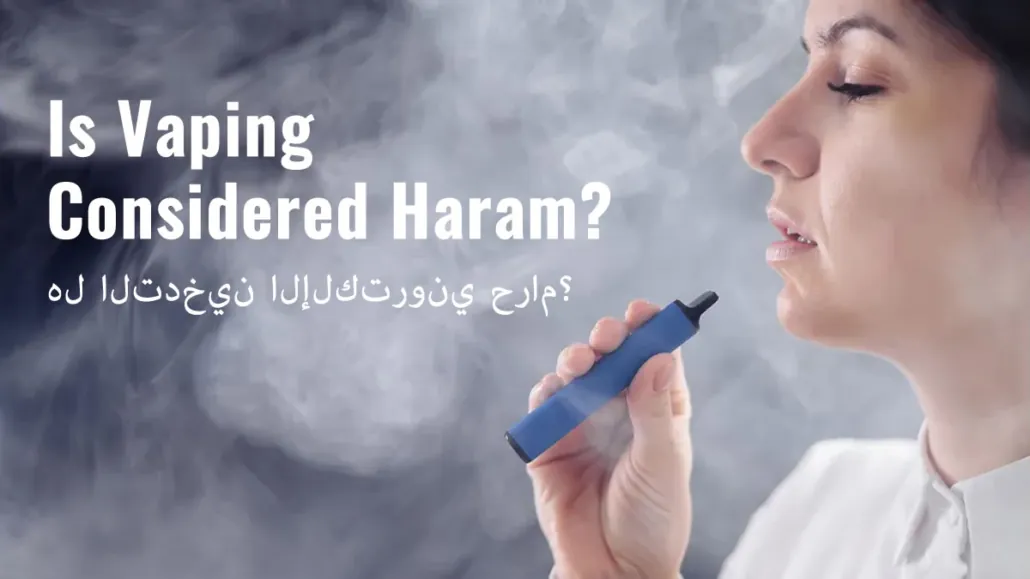Does Vaping Break Wudu? A Muslim Scholar’s Insight
As a vaping enthusiast, I recently found myself pondering a question posed by a Muslim friend: does vaping break Wudu? Intrigued by this inquiry, I embarked on a journey to find an answer, delving into the intricacies of Islamic faith and consulting with a Muslim scholar. In this article, I will share my findings and shed light on the relationship between vaping and Wudu for our Muslim readers.
Understanding Wudu
Wudu, or al-Wudu in Arabic (الوضوء), is a sacred ritual in Islam that involves washing specific body parts with pure water before engaging in prayer (Salah) or handling the Holy Quran. This act of cleansing oneself is a fundamental aspect of the Islamic faith, as illustrated in Qur’an 2:222, which states, “For God loves those who turn to Him constantly and He loves those who keep themselves pure and clean.”
The Islamic prophet Muhammad is credited with saying, “Cleanliness is half of faith,” further emphasizing the importance of Wudu in the lives of Muslims.

Types of Wudu
There are three main types of Wudu in Islam:
- Fard (obligatory): This type of Wudu is mandatory and must be performed before any prayer.
- Wajib (not obligatory): Wajib Wudu is only required under certain circumstances, such as during the Hajj pilgrimage when circling the Holy Kaaba.
- Mandub (recommended): Mandub Wudu refers to specific cleaning procedures performed before handling certain Islamic scriptural texts or before sleep.
Is Vaping Considered Haram?
To determine whether vaping breaks Wudu, it is essential to first examine the permissibility of vaping in Islam. In Islamic law, actions are classified as either Halal (permissible) or Haram (prohibited).
The debate surrounding the permissibility of vaping in Islam is ongoing, but there are several factors that suggest vaping may be considered Haram:
- E-liquids often contain nicotine, a habit-forming and potentially harmful substance. Muslims are obligated to protect their health, as stated in Surah 2, Verse 195: “And do not cast yourselves into destruction with your own hands.”
- Some e-liquids may contain alcohol, which is prohibited according to Surah 2, Verse 219: “The sin is far greater than the benefit.”
However, if an e-liquid is free from nicotine, alcohol, and other prohibited ingredients, it could potentially be considered Halal. Some e-liquid brands even claim to be Halal and/or Kosher.
Despite this, the long-term effects of vaping remain largely unknown, and it is unlikely to be considered a healthy practice. As such, it could be argued that vaping, like smoking, is a form of consumption that may endanger one’s health and is therefore Haram.

The Verdict: Does Vaping Break Wudu?
While it may seem logical to assume that engaging in a potentially Haram activity like vaping would nullify the ritual purification of Wudu, the reality is more nuanced. According to the Muslim scholars I consulted from muslimmessage.com and questionsonislam.com, there are specific guidelines outlining what nullifies Wudu.
These nullifiers include acts such as urination, defecation, flatulence, deep sleep, light bleeding, menstruation, postpartum, and sexual intercourse. Notably absent from this list are vaping and smoking.
Therefore, based on the current understanding of Islamic jurisprudence, the act of vaping itself does not break Wudu, despite the potential Haram status of e-cigarette devices containing nicotine or other harmful substances.
Frequently Asked Questions
Can I vape during Ramadan?
The permissibility of vaping during Ramadan is a topic of fierce debate within the Muslim community. As Ramadan is a time for self-discipline and reflection, abstaining from vaping (and smoking) would be preferable. For more information, check out our post on vaping while fasting.
Where can I find more information about vaping as a Muslim?
While we plan to create more content on this topic in the future, we recommend checking out this post for additional insights and perspectives on vaping and Islam.
Conclusion
In summary, while the use of e-cigarette devices containing nicotine or other harmful substances is considered Haram in Islam, the act of vaping itself does not break Wudu. This is because the specific list of Wudu nullifiers does not include vaping or smoking.
However, it is essential to note that this article is not intended as a substitute for religious authorities, and the author’s knowledge of Islamic faith is limited. We encourage readers to consult with their local Muslim scholars for further guidance on this matter.
As the debate surrounding vaping and Islam continues to evolve, we remain committed to providing informative and thought-provoking content for our Muslim readers. We welcome your feedback and insights in the comments below.
- Bestselling Vapes in UK After Disposable Ban: What to Stock 2025 - August 8, 2025
- Argentina Debates Stricter Vape Laws Amid Prohibition Failures - August 8, 2025
- Nigeria Advocacy Group Urged to Hike Tobacco & Vape Tax by 100% - August 8, 2025








